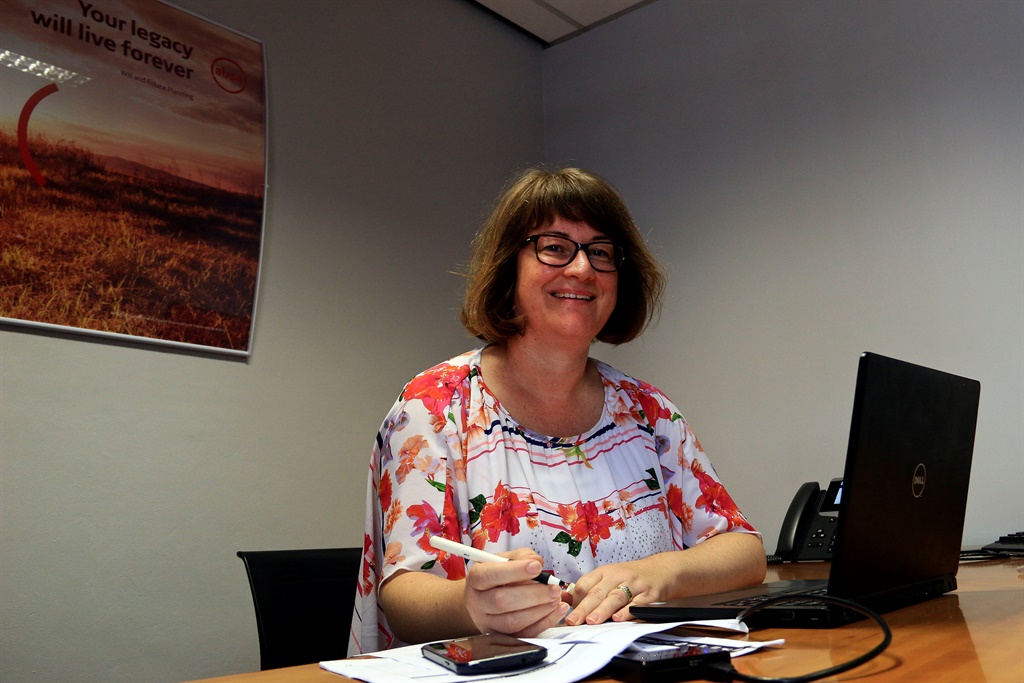
Any sustainable financial plan needs to be a family affair. This requires discussing your financial situation, values and goals and making provision for your children’s future. Thuli, a mother of four and head of operations at an NGO, and Amanda, a widow, accountant and mother of three, share their family journeys. Both offer lessons and experiences on why those family discussions are so important.
The aftermath of not having a plan
When Amanda’s husband died 18 months ago, it was not only an emotional trauma but a financial one, too. He had left no financial plan, no insurance payout or policies for his three children’s education.
“He just did not want to speak about it,” says Amanda, who discovered that the only insurance policy he had was for accidental death. As he had died of a heart attack all those expensive premiums had been a complete waste. “The will was signed before the kids were born. I had asked him to do a new will – he sent the information to Sanlam – but he never signed it.”
He had also not prioritised retirement funding, leaving Amanda with less than R200 000 from his retirement annuity to raise the children. Without making some drastic changes to their lifestyle, the money would have run out by the end of this year. “I was grieving but frustrated. I had thought we still had time to sort out the finances. I realised I can’t change anything, I can’t spend time getting irritated, I must make it work,” says Amanda about her decision to join the Money Makeover.
Through her Money Makeover journey Amanda has found extra money in her budget to make ends meet, but her biggest priority was to secure her children’s future.
“The reality hit, I was all that the kids have left and they are still so young. Even with this heightened awareness, it took me a long time to sort out my will. Signing it felt very final. When I did sign it, I did not feel happy about it. So, I appreciated the chance to review my will during the Money Makeover Competition.”
This time around Amanda received advice from her Absa financial adviser, Riette Visser, in addition to attending a presentation by a lawyer organised by her HR department during Wills Week. “All of this really helped me to create a will that I feel comfortable with and knowing I will be leaving a legacy to my children.”
Her adviser reviewed her life cover which was spread over two insurance companies, doubling the fees. By consolidating and shopping around for quotes, she was able to save R600 a month for the same cover.
“I am now at a place where I am happy with the provisions that I have made for my kids future when I am not here. First prize obviously is still to be able to watch them grow and become the people they are meant to be.”
HAVING THAT CONVERSATION
When Thuli joined Money Makeover it was clear she and her husband needed to consolidate their finances and start talking about the household budget.
“For the longest time my husband and I conducted our finances separately. We had a broad understanding and agreement of what we were doing separately. He was responsible for big items, such as the mortgage payment and vehicles. I was responsible for everything else”.
This is not an uncommon arrangement in households, but it is one that can lead one partner into financial difficulty. While certain “big expenses”, such as the mortgage and car payments, stay relatively fixed, the “smaller” day-to-day expenses often increase ahead of inflation. Before long the partner taking care of these finds they are living off credit card debt.
“As part of the Money Makeover journey, we had to use the budget as our blueprint. For the first time in a long time, we were forced to look at our finances/budget as a team. An added complexity for us as a couple is that we stay in different cities and we have duplicated expenses,” says Thuli about the couple’s unusual living arrangement due to a work transfer.
As the couple owns several properties the first decision was to separate rental income and expenses from their everyday finances by opening a separate banking account for rental activities. “We developed a household budget which included expenses from both households, school fees and other living expenses. We agreed to proportionally cover household expenses based on income contribution.”
One way to divide the household budget fairly is to base the contributions on the relative salaries. For example, if the total household income is R100 000 and one partner earns R60 000 and the other earns R40 000, then the financial responsibility is divided 60/40. What is left after contributing to the household budget gives each partner the flexibility to do what they each want to do individually. “This has reduced my stress levels a lot as I was previously responsible for everyday expenses. Now that we are both responsible, this has made my life easier. Every item in the household budget is agreed by both of us. This serves as a check and balance mechanism for us,” says Thuli.
How to provide for your children
Having that conversation about “what will happen when I or you die” is not easy. Thuli decided to include their teenage and adult children in the conversation so they knew they were taken care of. “My younger son was not happy about the conversation; he felt like we were predicting our death. My daughter is happy with the guardians, although she had someone else in mind. In the end we agreed that it’s our decision. We told them that before they get their ‘inheritance’ they have to undergo a personal financial management course to ensure they don’t blow what they have within months.”
Testamentary trust: Both Amanda and Thuli included a testamentary trust to be set up until the kids reach 25. This comes into effect only in the event of death and the money will be managed to provide for the children’s day-to-day expenses.
Guardian: Choosing a guardian is not easy as you need to take into consideration both the ability of the guardian to physically manage looking after the children and the disruption to the children’s daily lives. For example, you may have a parent who can move into the family home or a sibling who lives further away – requiring a change of schools and community. “I have chosen a guardian who will allow my kids can live in the same town and go to the same school. I plan to review my will annually, just to make sure that what I envision is still realistic,” says Amanda.




 Publications
Publications
 Partners
Partners










